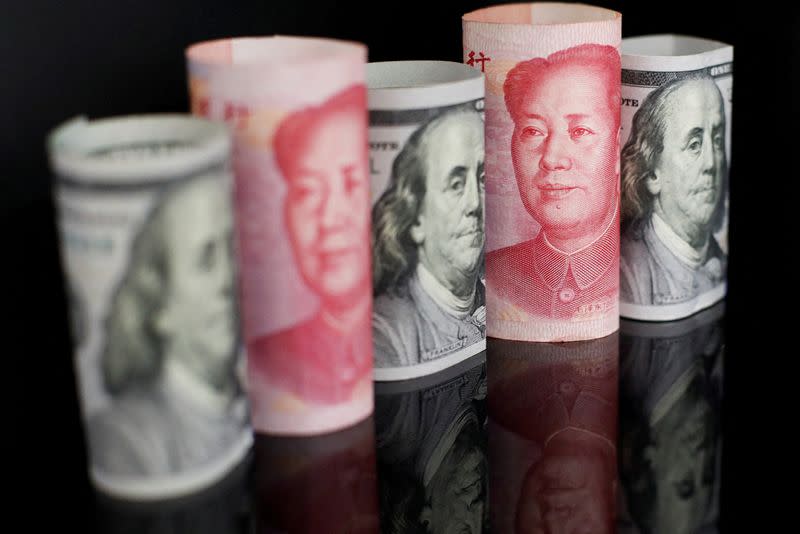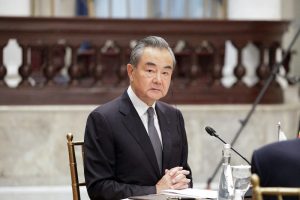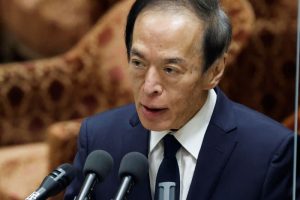The Chinese yuan fell to a more than two-week low on Monday as protests in China against the government’s zero-Covid policies caused investors to back the safe-haven US dollar.
With protests having flared across China and spread to several cities, investors were worried over how Beijing would react to the wave of civil disobedience at a time when Covid cases are rising.
Demonstrators clashed with police in Shanghai on Sunday night in the wake of an apartment fire that killed 10 people in Urumqi in the country’s far west.
“We’re really looking at the government response to what’s happening … the government response is so unpredictable, and of course that just means derisking,” Chris Weston, head of research at Pepperstone, said.
The offshore yuan fell to an over two-week low in Asian trading, and was last roughly 0.4% lower at 7.2242 per dollar.
The Australian dollar, often used as a liquid proxy for the yuan, slid more than 1% to $0.6681. The kiwi fell 0.72% to $0.6202.
ALSO SEE:
Chinese Stocks Sink After Covid Cases Rise, Protests Over Policy
PBOC Cuts Reserve Ratio Requirement
China’s stringent Covid restrictions have taken a heavy toll on its economy, and authorities have implemented various measures to revive growth.
On Friday, the People’s Bank of China (PBOC), the nation’s central bank, said it would cut the reserve requirement ratio (RRR) for banks by 25 basis points (bps), effective from December 5.
“If the RRR cut is the only monetary policy tool that the PBOC is going to implement, it may not lead to a significant increase in bank lending,” Iris Pang, chief economist for Greater China at ING, said.
“Companies are currently facing weaker retail sales from a higher number of Covid cases and falling home prices from unfinished home projects.”
Elsewhere in the currency market, the euro fell 0.5% to $1.0350, while sterling was down 0.26% at $1.2057.
The latest developments in China have put a pause on the US dollar’s decline, which had been softening over the past few weeks on hopes that the Federal Reserve would soon slow its pace of rate hikes – a view that was supported by the November meeting minutes released last week.
Against a basket of currencies, the US. dollar index rose 0.07% to 106.41, edging away from its recent three-month low of 105.30.
Federal Reserve chairman Jerome Powell is due to speak on the outlook for the US economy and the labour market at a Brookings Institution event on Wednesday, which could provide more clues on the outlook for US monetary policy.
Market expectations of a less hawkish Fed have helped the Japanese yen gain a footing, said Moh Siong Sim, a currency strategist at Bank of Singapore.
The yen was up about 0.5% to 138.40 per dollar.
“The market is thinking that the Fed downshifts to a 50-basis-point rate hike and perhaps going to a pause next year, and that might limit the upside in US (Treasury) yields. And dollar/yen is probably queuing into that sort of idea.”
- Reuters with additional editing by Jim Pollard
ALSO SEE:
China Industrial Profits Slump as Economy Wilts Under Covid
Shanghai Covid Protests Break Out as Lockdowns Fury Builds
South Korea to Meet Striking Truckers as Supply Chains Suffer
























